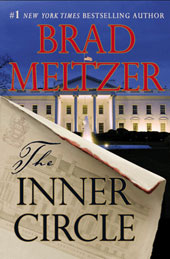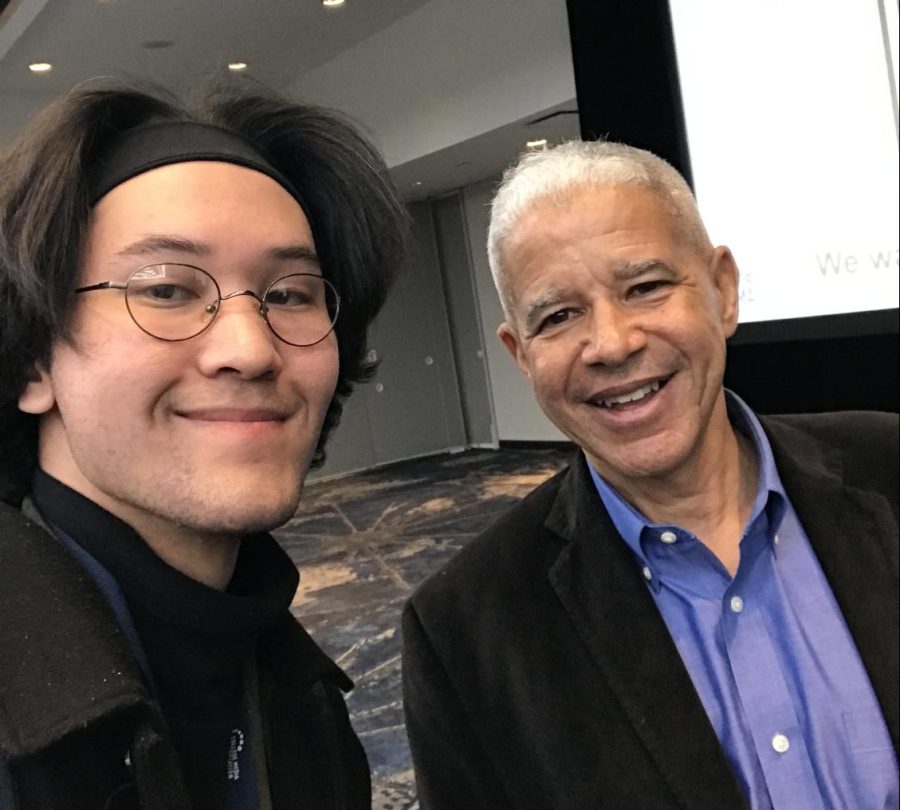
Brad Meltzer’s brand new thriller “The Inner Circle” is sure to be a New York Times bestseller, as so many of his past novels have been.
But unlike his past novels, this story delves into the secret lives of presidents of the past, present, and future.
In this historical thriller, Meltzer builds the entire story around a murder mystery that transports the reader back to the time of George Washington.
The story takes place in the Washington D.C. of the future, where a new president is in office, Orson Wallace.
The story opens with Beecher Benjamin White, an archivist with the National Archives, awaiting the arrival of Clementine, a woman he has not seen for fifteen years.
White leads a quiet and repetitive lifestyle, especially since his fiancée broke his heart. He spends every day following the same routine, immersing himself in his work and convincing himself that he couldn’t be more content.
When Clementine comes back into his life he can’t help but fall for the self-confident and fearless girl that he remembers from his childhood, and when he meets her again, he finds her to be the same as he remembered.
In a bid to impress her, White helps her with the task of finding information on her absentee father in the National Archives.
White goes out of his way to impress his new love interest, taking her to the SCIF—Sensitive Compartments Information Facility—the high-security room where President Wallace enjoys spending his time reading ancient documents, mostly pertaining to his predecessors.
With the help of White’s friend, Orlando Williams, they are granted access into the private reading room. Naturally, trouble ensues when Clementine knocks over a Styrofoam cup filled with coffee. As they all rush to clean up the mess, the lone chair that the president sits upon during his reading is knocked over and a secret compartment is revealed.
Within this secret compartment lies an ancient dictionary that has been, by and large, gutted.
With some investigating White quickly becomes aware that this book could have once belonged to George Washington and the fact that it was being secreted away beneath the president’s chair could only mean that someone has been secreting information either to or from the room.
Williams offers to cover for White and Clementine, so they all leave the room with the dictionary in tow. Only moments after the trio is separated, White receives news that his friend is dead. Now White fears that he and Clementine may be next.
Meltzer uses a fast-paced writing style of short chapters and endless cliffhangers, giving the reader a constant feeling of shock, but also leaving them with a lack of substance. His
story consists of mostly quick thrills that instead of leaving a story that will stay in their minds long after they have finished the book.
Once you’ve reached the climax of the story, Meltzer’s already presented you with so many twists and turns, that instead of shock, the reader is left with a feeling of disbelief.
While telling the story from multiple points of view, Meltzer allows the reader a glance at every character’s actions without fully giving away their motives.
This allows him to keep the suspense alive.
Unfortunately, this disjointed method can also leave the reader feeling completely disconnected from the main characters.
No matter how much insight is gained into the lives of White and Clementine, the reader never quite gets the feeling of understanding, sympathy or empathy—before they are given the chance, they are being whisked away towards the next plot twist.
Throughout the novel, White strives towards self-discovery, while simultaneously pushing his limits as the mystery takes him far outside his comfort zone.
As the story progresses, you learn more about his break-up and how it has left him feeling lost and alone. He fills his days with mundane tasks because it feels safe to him.
When Clementine reenters his life, he hopes that she will bring the spark that he feels he’s been missing, that her fearless selfconfidence will ignite something inside him, allowing him to love again, and begin to live the life he thinks he was meant to live.
By the end of the story, we see White discover it is not another human being who can bring him self-worth, but that this is something he must discover on his own. He learns to be a part of history rather than hiding behind it—if only the reader could have seen his internal journey rather than just his physical one.
Brad Meltzer is a well-known historian and writer of bestselling thrillers and has his own television show on the History Channel. With so much knowledge under his belt, one can’t help but expect something great, but “The Inner Circle” falls short of that expectation.
If all you’re looking for is a quick read that will keep you turning the pages until the end, then this book is worth a chance.
But be aware that once you have finished this book you will be left with neither an emotional connection to the characters, nor a historical masterpiece to add to your bookshelf.
“The Inner Circle” leaves the reader feeling as if they became lost in Brad Meltzer’s dream for another bestseller rather than his dream to tell the secret histories of the presidents of the United States.










